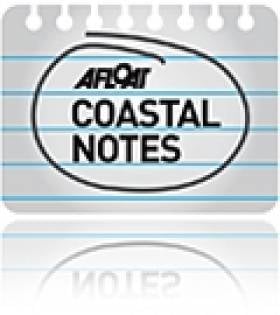Displaying items by tag: ecoli
Potentially "Life-Threatening" E.Coli Found in Survey of Irish Bathing Waters Prompts Calls to Revise EU Quality Criteria
New research on potentially harmful bacteria in Ireland’s seas, lakes and rivers highlights the need to revise current EU bathing water quality monitoring criteria, NUI Galway (NUIG) researchers have said.
Analyses of 111 samples taken from 50 locations in Galway city and county, Cork city and county and Fingal, Dublin, between 2016 and 2019 detected a pathogenic form of E. coli .
This form of E. coli called Shiga-toxigenic E.coli (STEC) can lead to potentially life-threatening infection in about 10% of cases, the researchers state.
As Afloat reported earlier, the bacteria was detected in 57% of 84 sea waters where samples were collected – all of which are deemed of “good” or “excellent” quality, based on current EU bathing water monitoring criteria.
STEC was also detected in 78% of the 27 lake and river samples tested.
Shiga-toxigenic E.coli (STEC) is carried naturally by cattle and sheep.
The NUIG Antimicrobial Resistance and Microbial Ecology (ARME) research team says that a microscopic quantity has the potential to do serious harm to humans.
It warns that ingestion could cause serious illness including bloody diarrhoea while about 30% of STEC cases require hospitalisation and about 10% develop haemolytic uremic syndrome, a potentially fatal complication that causes renal failure.
Ireland has the highest rate in Europe, the team states. Figures from the Health Protection Surveillance Centre record that in 2016 Ireland reported 16.6 cases of STEC per 100,000.
This is higher than the next worst offenders - Switzerland (8.2/100,000 population) and Norway (7.3/100,000 population) respectively- they point out.
“These findings highlight the need to consider revision of current EU bathing water quality monitoring criteria to consider characteristics of the organisms present,”Prof Dearbháile Morris of ARME says.
Her team is asking people to take the www.nuigalway.ie/bluespaces survey. It aims to “build a picture of what is stopping people from fully utilising our seas, lakes and rivers, and to help identify problem areas”.
The survey is part of the four year PIER project (Public Health Impact of Exposure to antibiotic Resistance in recreational waters), funded by the Environmental Protection Agency (EPA).
The researchers are asking the public to take the survey to help identify the barriers and enablers for people’s interaction with blue spaces - our beaches, seas, lakes and rivers.
“The most recent bathing water quality data reports that 96% of our identified natural bathing waters meets the minimum required standard,” Prof Morris, who is principal investigator on the PIER project,says.
“However, our research has revealed the presence of organisms of public health concern in waters designated as of excellent quality in some cases,” she points out.
NUI Galway researchers will use the findings from the PIER project to create a systems map to identify problem areas, identify and prioritise collaborative change strategies and explore stakeholder engagement opportunities.
“No matter how much or little you engage with our waters, your contribution will help co-design strategies to maintain and protect our waters for future generations,” Dr Sinead Duane, postdoctoral researcher with the project, says.
For more information and to take part in the survey visit www.nuigalway.ie/bluespaces.
#beach – Clare County Council, on the advice of the Health Service Executive (HSE), has today (Saturday, 21 July 2012) lifted restrictions relating to public bathing at Lahinch, Kilkee and Spanish Point beaches.
The Council confirmed that the preliminary results of water samples taken from the three bathing areas yesterday (Friday) have shown a dramatic reduction of levels of bacteria in the water. The Council and HSE said an improvement in weather conditions in recent days has been the main contributory factor to the positive results.
As previously reported on Afloat.ie the prohibition on bathing at the three locations was put in place on Friday after the results of routine tests on water samples at the three beaches showed up elevated levels of bacteria.
According to Anne Haugh, Director of Services, Clare County Council: "On the advice of the HSE and following analysis of water samples, the Council is delighted to be able to announce the lifting of all restrictions relating to bathing at Lahinch, Kilkee and Spanish Point. Public notices indicating that swimming and surfing at the three locations are no longer prohibited are being erected this afternoon, while the Blue Flag at Lahinch and Kilkee beaches have been restored having been temporarily withdrawn on Friday. Lifeguards at each of the three bathing areas also have been instructed to remove all red flags which had indicated that bathing was prohibited."
Liam Griffin, Water Safety Officer, Clare County Council added: "Clare County Council would like to thank the public for their understanding and cooperation over the past 24 hours. The local authority also acknowledges the valuable role played by the media in promoting the public health notices."






























































